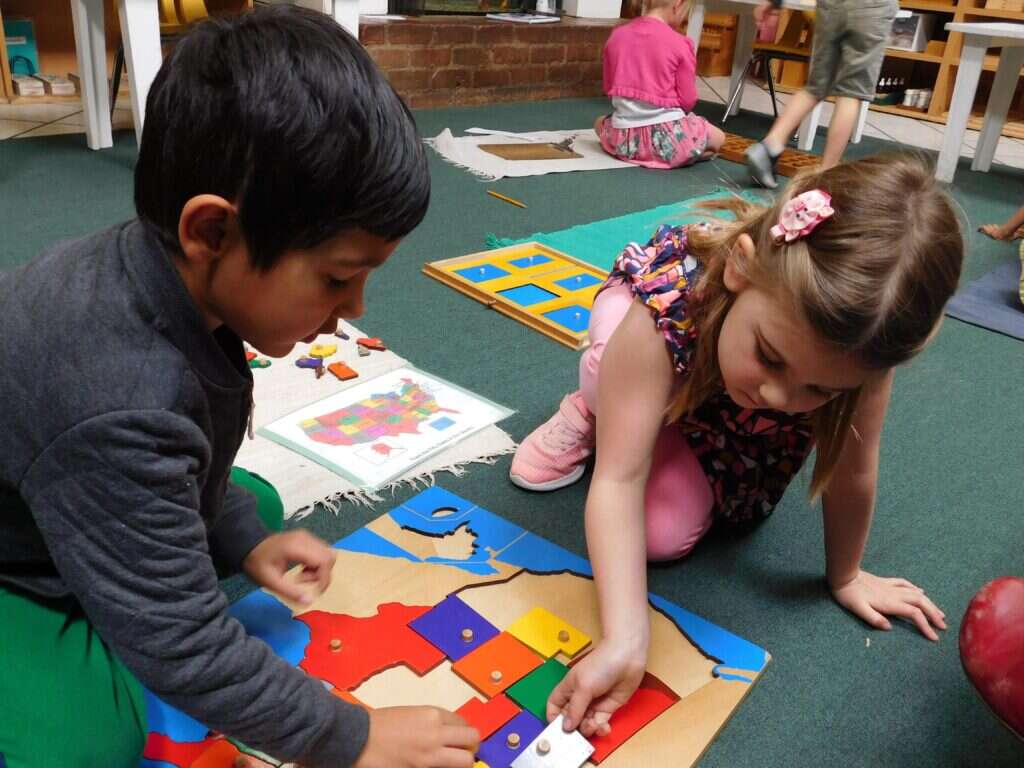Faizan Makhdum.

What is Early Childhood Education and Development?
When it comes to the lives of young children, parents are amongst the most important group of people in their lives. They include mothers and fathers of the child as well as other caregivers such as grandparents who act as parents. To be healthy and happy and to grow and develop well, children have to rely on their parents to receive the care needed. However, if the parents lack information on child development and receive little to no support in knowing what constitutes good parenting, it can have quite the opposite effect instead.
According to UNESCO, Early Childhood itself is defined as the period in the life of a child from the time of birth to the age of eight years old. They define this time as the duration during with a child grows with the development of their brains to a peak. Thus, the people and environment that the children are surrounded with influences significantly them throughout this period. This further calls for an intervention into early childhood care and education for their development. This helps to more than prepare the child for kindergarten, nursery, or primary school. This is more focused on the holistic development of the child’s physical, social, emotional, and cognitive needs so that a solid and diverse foundation is built to help them become lifelong learners with the manifestation of healthy wellbeing. Therefore, educating parents regarding early childhood development allows us to prepare parents that are more caring, responsible, and capable in the future.
What is the goal of Early Childhood Education?
A report on early childhood education and intervention published by the National Research Council in 2000 divided that children’s development should be divided into three areas: cognitive skills, social and emotional development, and the children’s readiness for school.
Cognitive skills refer to the child’s ability to develop attention, short-term and long-term memory, logical thinking and reasoning, audio and visual processing, and processing speed. These help the children develop key skills to help them think, read, remember, learn, stay focused and develop problem-solving skills.
Social and emotional development refers to the children’s understanding of who they are, what they feel, and what to expect what they interact with other people, specially outside of their household. This covers their development of being able to form positive relationships with others and experience, manage and express their emotions according to circumstances.
Readiness for school refers to the development of children’s abilities and skills that allow them to perform at full capacity when they start nursery or kindergarten. Some of these include their ability to interact or socialize with others or externals outside of their usual home environment, demonstrate emotional maturity in different situations, communicate in the required language of use effectively, use their cognitive skills, be able to complete tasks independently and maintain coordination during physical activities.
Parental role in Early Childhood Education and Development
There is a universal assumption that determines parents’ ability to raise young children well based on the accurate and appropriate expectations for children’s behaviour. Whereas, in families what children develop less optimally, there are many researchers who have indicated that this is not only observed as less effective due to lack of parenting skill but also due to a lack of knowledge about child development. Therefore, it becomes crucial for a skillful parent to possess sound knowledge regarding the child’s development process and mechanism throughout the course of their infancy and further development.
Education programs that are systematic in nature can help parents in developing countries such as Pakistan to nurture children with immense intellectual and emotional intelligence. Such programs run successfully with evident results across many developed countries. The main focus of these programs is meant to focus on interaction skills, resulting in greater knowledge amongst parents for children and their development. There have been a number of studies to show positive results from such programs. A study by Gordon and Guinagh (1974) and Grantham-McGregor and Desai (1975) indicated healthy changes produced in the children’s development and in parent’s awareness about their child’s development as a result of parent training programs. Further research has been done by Field (1981) to prove the effectiveness of parent training programs for teenage or young mothers of premature babies. This research showed that these programs help to enhance the knowledge regarding child development and also develop interactional skills amongst parents. The study was further analyzed after four months, where interventional evidence suggested that parents develop a greater knowledge about child developmental milestones and demonstrated more appropriate interaction with their children in person. Such types of studies that are experimental in nature have shown consistent benefits in parents’ knowledge and skills as a result of systematic education programs.
The funding for such programs should potentially and initially be borne by the Federal and State governments of Pakistan in order to ensure generational developments of our future youth through parental education. According to a mass study carried by Seven Jr JH (1984) amongst an ethnically and culturally diverse range of parents, it is known that child development and its education to parents plays a crucial role in the development of children’s emotional, social, and academic intelligence when they grow older and go to schools.
Need for investment into Early Childhood Education and Development in Pakistan
This makes Early Childhood Education Development an important tool to uplift the socioeconomic circumstances of a developing country such as Pakistan. For us, this means that nearly 40 percent of our children under the age of five fail to reach their full potential because of poverty, limited access to health care, education, and lack of good nutrition. Our statistics are much worse according to the open society foundation, indicating that 63 percent of our children between the ages of three to five do not receive education during early childhood. But you cannot blame them if their parents haven’t received the education on how to cater to their children’s development in the first place.
This requires a desperate need for funding and investment into the early childhood education sector of Pakistan to sustain the future of our children who will represent our youth. There have been a few collaborations in place such as the Children’s Global Network-Pakistan collaborating with the Ministry of Federal Education and Professional Training, establishing the Parwan-National ECED (Early Childhood Education and Development) Centre of Excellence. However, there need to be such initiatives on multiple fronts and through different entities to guarantee the desired impact across our nation.
References
Field, T. Early development of the preterm offspring of teenage mothers. In K. Scott, T. Field, & E. Robinson (Eds.), Teenage parents and their offspring. New York: Greene & Stratton, 1981.
Gordon, I. J., & Guinaugh, B. J. A home learning center approach to early stimulation. Final Report, 1974. (ERIC Docu- ment Reproduction Service No. ED 115 388)
Grantham-McGregor, S. M., & Desai, P. A home visiting inter- vention program with Jamaican mothers and children. Developmental Medicine and Child Neurology, 1975, 17, 605-613.
NICHD Early Child Care Research Network. Child Care During the First Year of Life.º Merrill-Palmer Quarterly. 1997, 43, pp. 340-60.
NICHD Early Child Care Research Network. Child Care and Mother-Child Interaction in the First Three Years of Life. Developmental Psychology, 1999a 35:6, pp. 1399-1413.
NICHD Early Child Care Research Network. Child Outcomes When Child Care Center Classes Meet Recommended Standards for Quality. American Journal of Public Health 1999b 89, pp. 1072-1077.
NICHD Early Child Care Research Network. Forthcoming, The Relation of Child Care to Cognitive and Language Development, Child Development, 2000.
Stevens Jr JH. Child development knowledge and parenting skills. Family relations. 1984 Apr 1:237-44.
UNESCO Brief, Early Childhood Care and Education, https://en.unesco.org/themes/early-childhood-care-and-education

